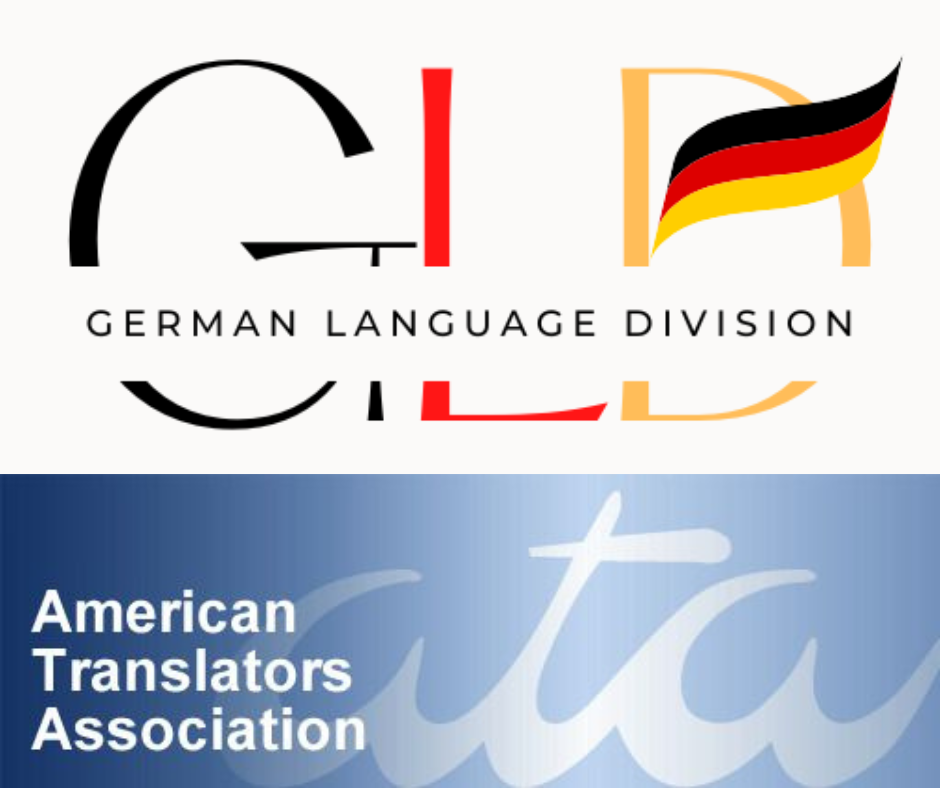Last week I did something exceptional (for me). I attended a business forum about trade between Germany, the United States, and Mexico sponsored by the Düsseldorf Chamber of Commerce and Industry (IHK, “Wirtschaftsforum USA”). Why was this exceptional, you ask? Firstly, because it was an event geared toward my potential clients rather than toward language professionals. And secondly, because it took place in my own backyard, as it were, in Düsseldorf, the capital of North Rhine-Westphalia (NRW), my permanent home for the past 14 years (Aachen).
As is usually the case once Pandora’s Box has been opened, I immediately felt an enormous sense of regret at the fabulous (free) resources I have been missing out on over the years, a sort of post-FOMO. Luckily, there are plenty of events in the pipeline and lots to browse online. I even managed to research the NRW-USA Year advertised at the forum, which reminded me of the ties between my own home state of Pennsylvania and NRW:
A Perfect Match
When thirteen Mennonite families from Krefeld set foot in Pennsylvania in the 17th century, it marked the beginning of the first German settlement in the New World. On October 6, German American Day will commemorate this historic moment. 340 years later, the USA and our country still share a deep friendship built on a foundation of common interests.
But back to the business forum.
The IHK offered the half-day event to all-comers at no charge. The attendees were mostly (small) business owners in North Rhine-Westphalia looking to do business in the United States and/or Mexico. Katrin Lange, IHK Country Desk Officer for the United States, and her counterpart in Aachen, Patricia Heiliger, responsible for Mexico, welcomed the participants to Düsseldorf.
The first speaker was Jona Rowold of the German-American Chamber of Commerce (AHK) of the Southern US in Atlanta, Georgia, who talked about current trends and developments in the US South with a focus on the automotive, logistics, and e-mobility sectors in the region.
Second up were Kirsten Hentschel from the US Consulate General in Düsseldorf and Christin Mechler from the SelectUSA program, who talked about this US program focusing on job-creating business investment in the United States. The two speakers also discussed the visit by the US Department of Energy that had just taken place in Düsseldorf that week.

The remaining talks all expanded the focus on North America to include Mexico as an important trade partner with Germany. Mario Monsreal, Head of Investment Attraction Services at OCO Global GmbH in Frankfurt, spoke about Mexico as the starting point for doing business with the US. IHK Düsseldorf staffer Savas Poyraz discussed the consequences of the United States-Mexico-Canada Agreement (USMCA) on German trade. This agreement, which succeeded the North America Free Trade Agreement in 2020, has significantly affected sectors like automotive manufacturing. For instance, the USMCA tightens rules of origin, requiring that 75 percent of passenger cars and 70 percent of commercial vehicles be produced or have value added within the member states. A panel discussion featured Dr. Michael Stumpp, President of the German-Mexican Society (Deutsch-Mexikanische Gesellschaft e.V.), who previously spent extended periods in Mexico as the President of the BASF Group Mexico. Two representatives of German small and medium-sized enterprises (SMEs), Stefan Siebert, CEO of Dr. Brockhaus Messtechnik GmbH in Lüdenscheid, and Christoph Lienemann, Managing Director of PEM Motion North America, were also part of the panel. The first-hand reports from the SME heads doing business in the US were particularly interesting for me. Both of them emphasized the importance of university collaboration as a first step to establishing a business presence in the US, with RWTH Aachen University spin-off PEM Motion offering an exchange program for doctoral students.
All three panelists stressed the need to understand the way things work in the local market. While a German company’s longevity (“We’ve been in this business for over 20 years”) is important for the German market, the way into the US market is to point out how a business can help the potential customer.

The USA-Mexico-Germany panel discussion also touched on the USMCA, as well as on the impacts of the Inflation Reduction Act, which opened up numerous opportunities for German businesses in the energy and e-mobility sectors, for instance. The effects of various election scenarios were also discussed. With the Inflation Reduction Act being an actual law (as opposed to an Executive Order), the panelists did not anticipate any strong impacts in the event of a new administration. This is not the case for university collaboration, however, which in the past saw rapid funding cuts in certain research programs enacted by the new administration.
While it is important to adapt to the “Firmenkultur” in the particular country, German structural “imports” have been welcomed in regions of the US and Mexico where German companies operate. In Mexico, for example, “dual training” programs from Germany have been in place for over 40 years. And while it might be tempting to take advantage of the “catastrophic” employment conditions in the US (low to no benefits, low to no job protection) for workforce flexibility and quick response to economic developments, German employers are attractive for the local population, offering generous benefits, including paid vacation and job protection.
The final event of the afternoon was a presentation by Eric Wallner of NRW.Global Business on the upcoming corporate trip to the US states of Georgia and Tennessee and to Monterrey, Mexico, planned for November.
The event provided several opportunities for networking and information on future networking events, such as the 9th German-American Business Forum (9. Deutsch-Amerikanischen Wirtschaftstag) to be held on June 6, 2024, in Hannover.
My trip to Düsseldorf shed light on the intricate dynamics of German-North American business relations, underscoring the pivotal role of the German Chambers of Commerce (IHKs) in international trade. Captivated by the multifaceted operations of the IHK, I invited representative Katrin Lange to delve deeper into the IHK’s activities and German-US business interactions with our GLD members. She has graciously agreed to do so. We invite all GLD members to attend this exclusive presentation on June 12 at 4:00 PM CET (10:00 AM ET). The required sign-up page for this event can be found here.

Karen Leube, a native of Pennsylvania, is a freelance translator and translator trainer based in Aachen, Germany. She served on the faculty of the universities of Heidelberg and Mainz (FTSK), where she offered courses on biomedical technology and general medical translation in cooperation with local hospitals and research institutions. Since establishing her freelance business in 2004, she has taught numerous continuing education courses for translators and interpreters. Twelve of her book translations have been published to date, including Thomas Häusler’s Gesund durch Viren (Viruses vs. Superbugs).
Karen founded and coordinated ATA’s GLD Members in Europe group from 2009 to 2019 and served as the GLD’s Assistant Administrator for two years prior to assuming the position as Administrator in 2022.

